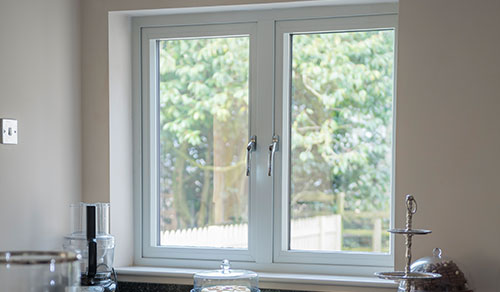When it comes to home improvements, particularly in the realm of windows and Doors By Ideal Glass, ensuring quality and compliance with regulations is paramount. One of the most recognized schemes in the UK that addresses this need is the Fenestration Self-Assessment Scheme, commonly known as FENSA. This article delves into what FENSA is, its importance, the benefits of FENSA-certified windows and doors, and how homeowners can navigate the installation process.
What is FENSA?
FENSA is a government-authorized scheme that was established in 2002 to ensure that the installation of replacement windows and doors complies with building regulations in England and Wales. The scheme was created to simplify the process for homeowners and installers alike, providing a straightforward way to confirm that installations meet the necessary legal standards.

FENSA aims to protect consumers by ensuring that installations are of high quality and that they adhere to safety and energy efficiency standards. Installers who are registered with FENSA are qualified to self-certify their work, which means they do not need to apply for building regulation approval for each installation. This not only streamlines the process but also provides peace of mind for homeowners.
Importance of FENSA Certification
FENSA certification is crucial for several reasons:
- Compliance with Building Regulations: FENSA ensures that installations meet the latest building regulations, which are designed to enhance safety, energy efficiency, and environmental sustainability. Non-compliance can lead to fines and the need for costly remedial work.
- Consumer Protection: By choosing a FENSA-registered installer, homeowners can be confident that their windows and doors are installed correctly and safely. FENSA also provides a complaints procedure, offering an additional layer of protection for consumers.
- Increased Property Value: Homes with FENSA-certified installations are often more attractive to potential buyers. Certification can serve as proof that the work has been completed to a high standard and complies with regulations, which can enhance the property's value.
- Energy Efficiency: FENSA-certified windows and doors typically meet stringent energy efficiency standards. This can lead to reduced energy bills and a smaller carbon footprint, benefiting both the homeowner and the environment.
Benefits of FENSA-Certified Windows and Doors
Opting for FENSA-certified windows and doors comes with numerous advantages:
- Quality Assurance: FENSA-registered installers are vetted and must adhere to strict standards. This means that homeowners can expect a higher level of workmanship and materials.
- Energy Savings: Many FENSA-certified products are designed to improve insulation, helping to keep homes warmer in winter and cooler in summer. This can lead to significant savings on heating and cooling costs.
- Reduced Risk of Issues: With FENSA-certified installations, there is a lower risk of problems arising from poor workmanship or non-compliance with regulations. This can save homeowners time and money in the long run.
- Warranty and Insurance: Many FENSA-certified products come with warranties that protect the homeowner against defects. Additionally, the FENSA scheme provides insurance-backed guarantees for certain installations, offering further peace of mind.
Choosing a FENSA-Registered Installer
When selecting an installer for your windows and doors, it is essential to ensure they are FENSA-registered. Here are some steps homeowners can take:
- Verify Registration: Homeowners can check the FENSA website to verify whether an installer is registered. This is a crucial step to ensure compliance and quality.
- Request Quotes: Obtain quotes from multiple FENSA-registered installers. This allows homeowners to compare prices, services, and products.
- Ask for References: A reputable installer should be able to provide references or examples of previous work. This can help homeowners gauge the quality of their workmanship.
- Discuss Products: FENSA-certified installers should offer a range of products that meet energy efficiency and safety standards. Homeowners should feel comfortable discussing their needs and preferences.
- Review Contracts: Before committing to an installation, homeowners should carefully review the contract, ensuring it outlines the scope of work, materials used, and warranty information.
The Installation Process
The installation of FENSA-certified windows and doors typically follows a straightforward process:
- Initial Consultation: The installer will visit the homeowner’s property to discuss their needs, assess the existing windows and doors, and provide recommendations.
- Quotation: After the consultation, the installer will provide a detailed quote, outlining the costs and timeline for the project.
- Preparation: Once the quote is accepted, the installer will prepare the site for installation. This may involve removing old windows and doors and ensuring the area is clean and safe.
- Installation: The installer will fit the new windows and doors, ensuring they are correctly sealed and aligned. This step is crucial for energy efficiency and security.
- Final Inspection: After installation, the installer will conduct a final inspection to ensure everything is functioning correctly. Homeowners should also take this opportunity to ask questions and clarify any concerns.
- Documentation: Upon completion, the installer will provide documentation, including a FENSA certificate, which serves as proof that the installation meets all regulatory requirements.
Conclusion
In conclusion, FENSA Windows & Doors play a vital role in ensuring that home improvements are carried out to high standards of quality and compliance. By choosing FENSA-certified products and installers, homeowners can enjoy numerous benefits, including enhanced energy efficiency, increased property value, and peace of mind knowing their installations are safe and compliant with regulations. As the demand for home improvements continues to grow, understanding the significance of FENSA certification is essential for making informed decisions that will enhance the comfort, safety, and value of homes.








